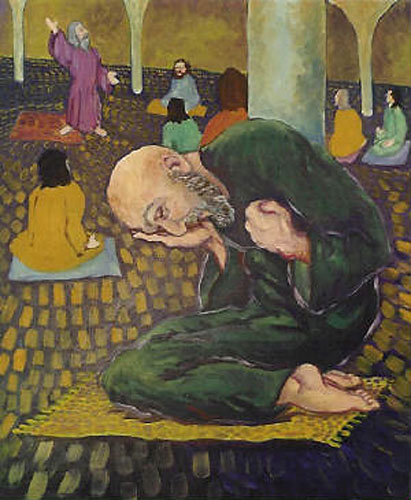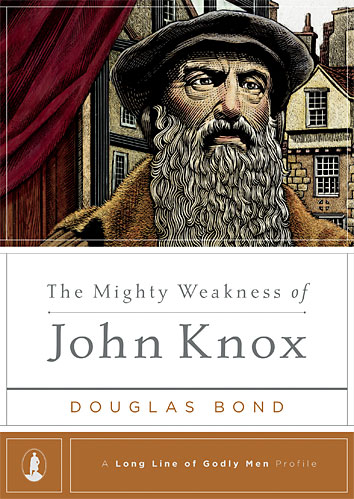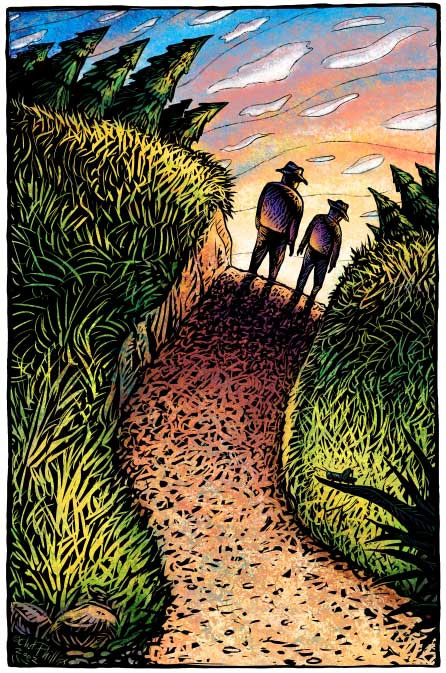Plodding Visionaries
Kevin DeYoung contrasts radicalism with old-fashioned consistency:
Continue reading
Kevin DeYoung contrasts radicalism with old-fashioned consistency:
Continue reading
Presbyterians and Baptists have a long history of working together. As is God’s way, any new endeavour must take the past into account but not be bound by it. This is a guest post by my friend Matt Carpenter.
The questions surrounding the origins and necessity of denominations have been discussed at great length and I don’t intend on bringing them up here. But it doesn’t mean we have a license to continue without giving it another thought. This isn’t another call for lip-quivering ecumenism. Fellow soldiers in God’s army can learn a lot from one another and the two groups I currently have in mind are Baptists and Presbyterians. Traditionally they have shared a lot in common.
Joe Rigney and Doug Wilson sit down to discuss the life, theology, and impact of Jonathan Edwards.
“Survival is not the highest good.”
Doug Wilson tackles contrived ethical dilemmas in his review of The Hunger Games.
Continue reading

“The abundant life is a life that is constantly being beheaded by the truth.”
“For I say to you, that unless your righteousness exceeds the righteousness of the scribes and Pharisees, you will by no means enter the kingdom of heaven.” (Matthew 5:20)
You may have had some experience with a “legalistic” church or Christian. We all know that a domineering leadership is a curse to the work of God, but so many people who make the decision to leave such ministries, or individuals, behind become “lawless” in their liberty. What’s really going on there, and what is the Bible’s solution for legalism?
[This post has been refined and included in Sweet Counsel: Essays to Brighten the Eyes.]
Continue reading
Andrew Hong summarizes some ancient Confucian rites and their meanings, and then writes:
We don’t have many rituals in our modern world – but if you take that one simple ritual, and multiply that into every sphere of life, and every relationship, then you are coming close to the kind of society that Confucius sought to create through the rites. The rites become the means for society to go from inhumane behaviour (in the form of warfare during the Warring States period) to humane and dignified behaviour.
The rites were also the way for society to go from disordered relationships (in the form of rebellion) to ordered and reverential relationships… You may recall that there were five key relationships in the Confucianism: ruler-subject, father-son, husband-wife, older-younger, and friend-friend. These relationships were largely hierarchical in nature, and the rites gave people a way to express and reinforce those relationships.
This is what missiologist Paul Hiebert has to say about the importance of rituals,
“Modern people commonly regard rituals as harmless interludes or discount them as meaningless performances. But rituals play a central role in most societies. They are multilayered transactions in which speech and behaviour are socially prescribed. [...] They give visible expression to the deep cultural norms that order the way people think, feel, and evaluate their worlds. [...] Because rituals dramatise in visual form the deep beliefs, feelings, and values of a society, they are of particular importance in studying worldviews.” Paul Hiebert, Transforming Worldviews, 82-83.
 From the recent book by Douglas Bond, pp. 51-53.
From the recent book by Douglas Bond, pp. 51-53.
Knox reluctantly began his preaching ministry when he was pressed int service as a chaplain during the siege of the Castle of St. Andrews. By popular demand, the private tutorials he prepared for his “bairns” developed into public exhortations from the Word of God. As we have seen, he was, in his flesh, a timid, fearing man; “I quake, I fear, I tremble,” he said. But when he opened his mouth to preach, all timidity vanished.
“But let a man examine himself, and so let him eat of the bread and drink of the cup. For he who eats and drinks in an unworthy manner eats and drinks judgment to himself, not discerning the Lord’s body. For this reason many are weak and sick among you, and many sleep.” (1 Cor. 11:28-30)
Some more detailed thoughts on what God is doing in the Lord’s Table. Part 1 here.
Covenant Renewal Worship follows the Bible Matrix. This means that our Christian worship recapitulates the Creation Week, the Feasts of Israel, and the journey from slavery to Sabbath (servants to sons), and the process of maturity, from childhood to adulthood. [1]
“…there is a historical difference between toleration and religious liberty, even if we sometimes use the two terms interchangeably today. Toleration puts up with minority religious believers because it is more convenient; religious freedom declares that they are allowed to practice their faith, privately and publicly, not because the government has given them permission, but because the permission is not the government’s to withhold.” — Nathaniel Peters, Should Christians Be Wary of Conscience Talk?

Blogger Kiersten writes:
Good books wound the reader. Great books leave scars that the reader will carry and revisit throughout life, and that is precisely why we have chosen to allow our children to begin to bear these wounds while they are relatively young.